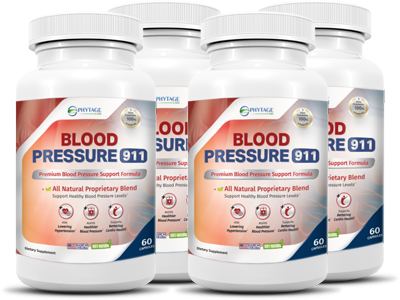
Vitamin C
Vitamin C May Help Lower High Blood Pressure
Population-based studies (which involve observing large groups of people over time) suggest that people who eat foods rich in antioxidants, including vitamin C, have a lower risk of high blood pressure than people who have poorer diets. Eating foods rich in vitamin C is important for your overall health, especially if you are at risk for high blood pressure. The diet physicians most frequently recommend for treatment and prevention of high blood pressure, known as the DASH (Dietary Approaches to Stop Hypertension) diet, includes lots of fruits and vegetables, which are loaded with antioxidants.
https://www.mountsinai.org/health-library/supplement/vitamin-c-ascorbic-acid
Niacin
How Niacin Lowers Blood Pressure
Nicotinic acid (niacin) is a well-established treatment for dyslipidaemia – an important cardiovascular disease (CVD) risk factor. However, niacin may also reduce blood pressure (BP), which is another important CVD risk factor. This review examines the limited publicly available data on niacin’s BP effects. Acute administration of immediate-release niacin may lower BP because of niacin’s acute vasodilatory effects. Although not always supported by clinical trial data, the package insert of a prescription, extended-release niacin describes niacin-induced acute hypotension. From a chronic standpoint, larger studies, such as the Coronary Drug Project, suggest that niacin may lower BP when administered over a longer period of time. Post hoc analyses of some of the more recent niacin clinical trials also support a more chronic, dose-dependent, BP-lowering effect of niacin.
https://www.ncbi.nlm.nih.gov/pmc/articles/PMC2705821/#:~:text=Nicotinic%20acid%20(niacin)%20is%20a,data%20on%20niacin's%20BP%20effects
Vitamin B6
Vitamin B6 Has a Role in the Control of Hypertension
Vitamin B6 (Pyridoxal-5-Phosphate) plays a crucial role in the nervous system as the amino acid decarboxylases involved in the synthesis of all putative neurotransmitters requires the coenzyme pyridoxal phosphate. Vitamin B6 in its various forms has antioxidant properties. Pyridoxal phosphate has a role in regulating cellular calcium transport through both the voltage-mediated and ATP-mediated purinergic mechanisms of cellular calcium influx and, hence, has a role in the control of hypertension. Pharmacological doses of vitamin B6 appear to decrease the high blood pressure associated with both genetic and nongenetic models of hypertension. Vitamin B6 has a crucial role in the normal function of the central and peripheral nervous systems. It also protects against ischemia and glutamate-induced neurotoxicity.
https://pubmed.ncbi.nlm.nih.gov/26281007/
Folate
Folate May Affect High Blood Pressure
Folate (Folic Acid) Folic acid is a B-complex vitamin found naturally in leafy green vegetables, citrus fruits, and lentils. Folic acid, also known as folate, can also be found in vitamin supplements and fortified foods such as breads and breakfast cereals.
Researchers say folic acid is thought to reduce the risk of high blood pressure by helping blood vessels relax and improve blood flow.
Previous studies have shown that diets rich in folic acid can improve blood pressure, but researchers say this is the first study to show that higher folic acid intake is associated with a lower risk of developing high blood pressure
https://www.webmd.com/food-recipes/news/20050118/folic-acid-may-fight-high-blood-pressure#1
B12
The Effects of Vitamin B12 Deficiency on Blood Pressure
Pernicious anemia is a condition that can arise from prolonged vitamin B-12 deficiency. The National Heart, Lung, and Blood Institute describes pernicious anemia as a condition in which the body is unable to produce enough healthy red blood cells due to insufficient levels of B-12.
This causes red blood cells to become unusually large because they are unable to split, and this puts increased pressure on the blood vessels and on the heart. The heart must work harder to ensure there are enough red blood cells to carry oxygen through the body.
Pernicious anemia is usually treated with pills or shots containing a high B-12 dosage so that the production of red blood cells can return to normal. It is important to treat pernicious anemia promptly because the increased pressure on the heart can lead to cardiovascular diseases and even stroke.
https://www.livestrong.com/article/326854-what-are-the-effects-of-vitamin-b12-on-blood-pressure/
In the present study, we show that DIM protects against cardiac hypertrophy by promoting AMPKα phosphorylation. AMPK is a serine/threonine protein kinase that plays an important role in the cardiovascular system. Previous studies have shown that AMPK activation can protect the heart from ischemic injury, cell death induced by reactive oxygen species and pressure overload-induced cardiac hypertrophy.
https://www.ncbi.nlm.nih.gov/pmc/articles/PMC3541184/
Good metabolites are known as 2-hydroxy estrogens. Many of the benefits that are attributed to estrogen, including its ability to protect the heart and brain with its antioxidant activity, are now known to come from these good metabolites. When DIM increases the 2-hydroxy estrogens, there is a simultaneous reduction of undesirable, or bad, estrogen metabolites. Estrogen’s healthy metabolism supports better functioning, improved mood, healthy fat metabolism, healthy heart and circulation, and better memory. In recent experiments, the good estrogen metabolites promoted by DIM also have been shown to prevent the oxidation of the special proteins called lipoprotein, which are needed to carry fat in the blood. These proteins are known as the "good" and "bad" cholesterol and are commonly measured in blood tests. They must be protected from oxidation to prevent them from starting the process of atherosclerosis, leading to heart disease.
https://fortwaynephysicalmedicine.com/blog/the-benefits-of-dim
